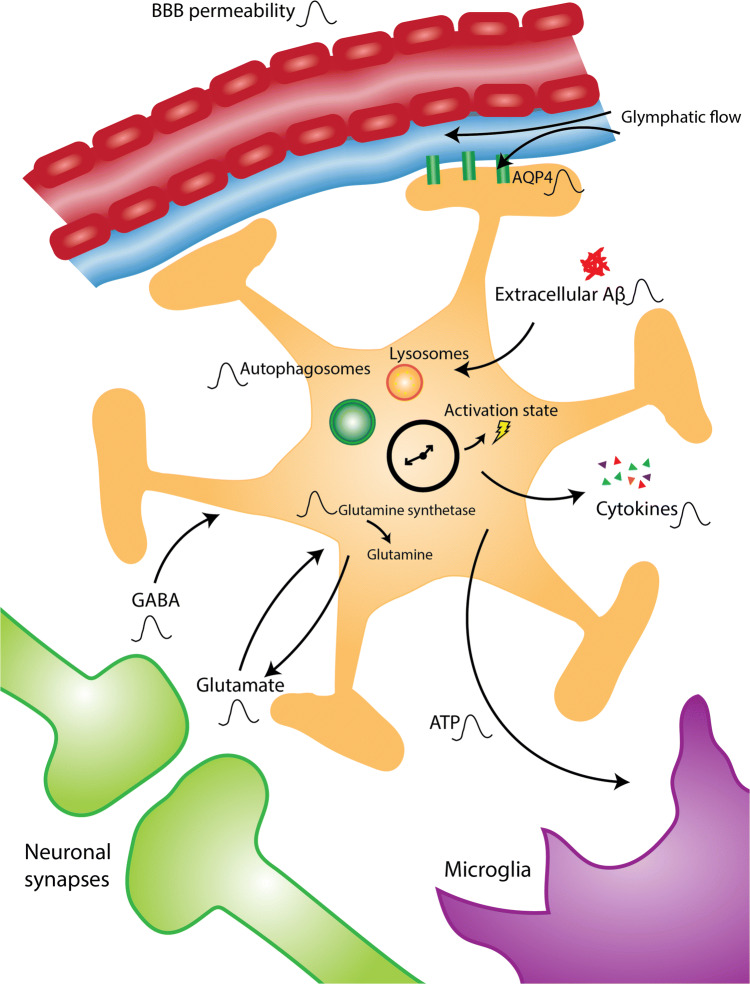Fig. 1.
Proposed influences of the astrocyte circadian clock in brain health and disease. The astrocyte circadian clock is known to control a number of important functions that oscillate with time of day, as indicated here by the oscillation symbol. Astrocytes extend their endfeet to the blood–brain barrier and regulate its permeability as well as glymphatic flow. Rhythmic AQP4 expression could influence these processes. Astrocytes modulate oscillations in extracellular levels of GABA and glutamate through modulation of transmitter uptake and metabolism, thus participating in neuronal synchrony and cellular crosstalk. Astrocyte ATP rhythms may also serve to interact with other cells in the brain such as microglia. The astrocyte clock is crucial to determining astrocyte activation state as well as rhythms in cytokine release. Finally, oscillations in the level of extracellular protein aggregates may be determined by rhythmic astrocyte uptake and degradation through clock-controlled pathways, such as autophagy

